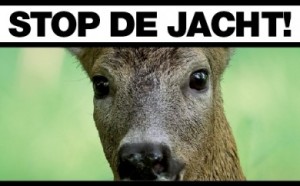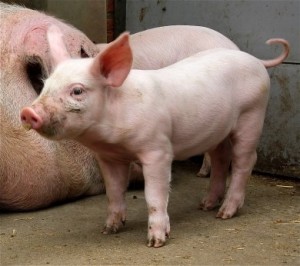Worldlog Semana 46 – 2014
¡Buenas noticias! En marzo de 2015 vamos a participar en 10 provincias en las elecciones provinciales. En Holanda hay en total 12 provincias, y es para mí un orgullo que en 10 de ellas hayamos podido encontrar buenos candidatos con el coraje para aventurarse a luchar por los animales, la naturaleza y el medioambiente. También tenemos listas de candidatos para ocho mancomunidades del agua (el órgano que se encarga de la gestión de las aguas en Holanda). Ambas elecciones se celebran el mismo día.
Desde las elecciones de 2011, nuestro partido cuenta con un representante parlamentario en 7 provincias. ¡Y ahora vamos a por 10! Como es natural, también esperamos incrementar nuestro número de representantes por provincia, lo cual es bastante posible que podamos conseguir considerando las encuestas.
Para nosotros es muy importante participar en estas elecciones, porque muchas decisiones provinciales afectan directamente a los animales, la naturaleza y el medioambiente. Algunos temas regionales importantes para nosotros son, por ejemplo, la caza con fines lúdicos, la conservación de la naturaleza y los megaestablos.
Además, en Holanda hay una modificación legal en marcha por la que la suerte de 2 millones de animales que todos los años están expuestos a cazadores lúdicos, pasaría a depender por entero de las provincias. Y las políticas de gestión de la fauna de las provincias, hasta el momento, han sido todo menos respetuosas con los animales. El Partido por los Animales puede provocar un cambio de rumbo si cuenta con la representación suficiente.
Las listas de candidatos y el programa electoral están todavía pendientes de aprobación en nuestro congreso del próximo 30 de noviembre.
¡Por fin se acabó el cortarle el rabo a los lechones! 🙂 Una mayoría parlamentaria ha apoyado nuestra moción al respecto. Ahora queremos que el Gobierno fije una fecha definitiva para acabar para siempre con esta práctica. A partir de entonces, los cerdos podrán conservar felizmente el rabo y se verán liberados de la dolorosa operación de corte.
Cortar rabos de cerdo está prohibido en Holanda desde 1996, pero existe la posibilidad de acogerse a una exención en caso de caudofagia (conducta por la cual unos cerdos muerden el rabo de otros). En este momento la prohibición se incumple de forma masiva en virtud de una “exención genérica”. Los cerdos viven en pocilgas demasiado llenas y mal acondicionadas, sin ninguna posibilidad de distracción. El estrés y el aburrimiento que sufren como consecuencia de ello, acaba provocando comportamientos como la caudofagia.
Este Gobierno quería dejar en manos de la industria cárnica la decisión de respetar o no la prohibición de cortar el rabo de los cerdos. Por suerte, ahora las cosas van a cambiar, lo cual era muy necesario.
Más éxitos esta semana: ha salido adelante nuestra moción para que todas las vacas de Holanda salgan a pastar al campo.
Y también se ha aprobado nuestra moción por una educación con más atención para la sostenibilidad. Una amplia mayoría del parlamento considera necesario prestar atención especial a los animales, la naturaleza y el medioambiente en la educación para contribuir a un planeta más habitable y a una economía más verde. Ahora se están estudiando formas de incluir la sostenibilidad como parte integral del paquete lectivo.
La pasada semana, la Animal Politics Foundation (la fundación internacional de nuestro partido) celebró un congreso en Belgrado (Serbia) para todos los partidos por los animales del mundo. El objetivo era intercambiar conocimientos y buenas prácticas para alcanzar el éxito como partido por los derechos de los animales. La semana que viene más información al respecto en mi blog internacional.
Un abrazo,
Marianne
Yes! In March 2015, we will participate in the provincial council elections in 10 provinces. The Netherlands has 12 provinces in total and I am proud that we have found good candidates in 10 of them, who dare to take up the challenge to stand up for animals, nature and the environment. And we have also drawn up lists of candidates for eight Water Authorities (Dutch administrative body for water management). Both elections take place on the same day.
Since the elections of 2011, our Party has had a seat in seven provincial councils. And of course, we are now going for ten of them! Obviously we also hope to increase our number of representatives per province. Looking at the polls, there’s a good chance that we will.
It’s very important to us to participate in these elections because much decision-making in the provinces immediately affects animals, nature and the environment. For example, pleasure hunting, nature conservation and mega-stalls are important regional topics to us.
Furthermore, there will be an amendment to the law in the Netherlands, which will put the fate of two million animals that are annually threatened by amateur hunters, into the hands of the provinces. The fauna policy of provinces has been far from animal-friendly until now. A powerful Party for the Animals can put a stop to that!
The lists of candidates and the election programme are at the approval of the Congress on 30 November next.
Finally a stop to the docking of piglets’ tails! 😉 A majority of the House of Representatives has seconded our motion on this. We want the government to set a final date to stop the docking of piglets’ tails for good. Pigs will fortunately then be allowed to keep their crumpled tail and are saved from painful tail docking.
The docking of pigs’ tail has been banned in the Netherlands since 1996, but this prohibition may be deviated from when pigs bite off each other’s tails. Currently, this prohibition is massively deviated from on the basis of a “general release”. Piglets have to live in overcrowded pens, in a bad climate and without distraction. This causes distress to them and makes them bored, which results in biting off each other’s tails.
This Parliament wanted to leave it up to the livestock industry to decide when to start respecting the prohibition on the docking of tails. Fortunately there now is a big stick, which is certainly needed right now.
And more successes this week; our motion has been adopted to regulate pasturing for all cows in the Netherlands.
Also our motion for sustainable education was seconded. A large majority of the House of Representatives finds it necessary that attention is paid to animals, nature and the environment to reach a habitable planet and a green economy! Research is now conducted into how sustainability can become an integral part of education.
Last week, the Animals Politics Foundation (the international foundation of our Party) held a gathering in Belgrade (Serbia) for all parties for the animals worldwide so that they could exchange best practices in order to become successful animal rights parties. I will tell you more about this in next week’s Worldlog!
Greetings, Marianne


